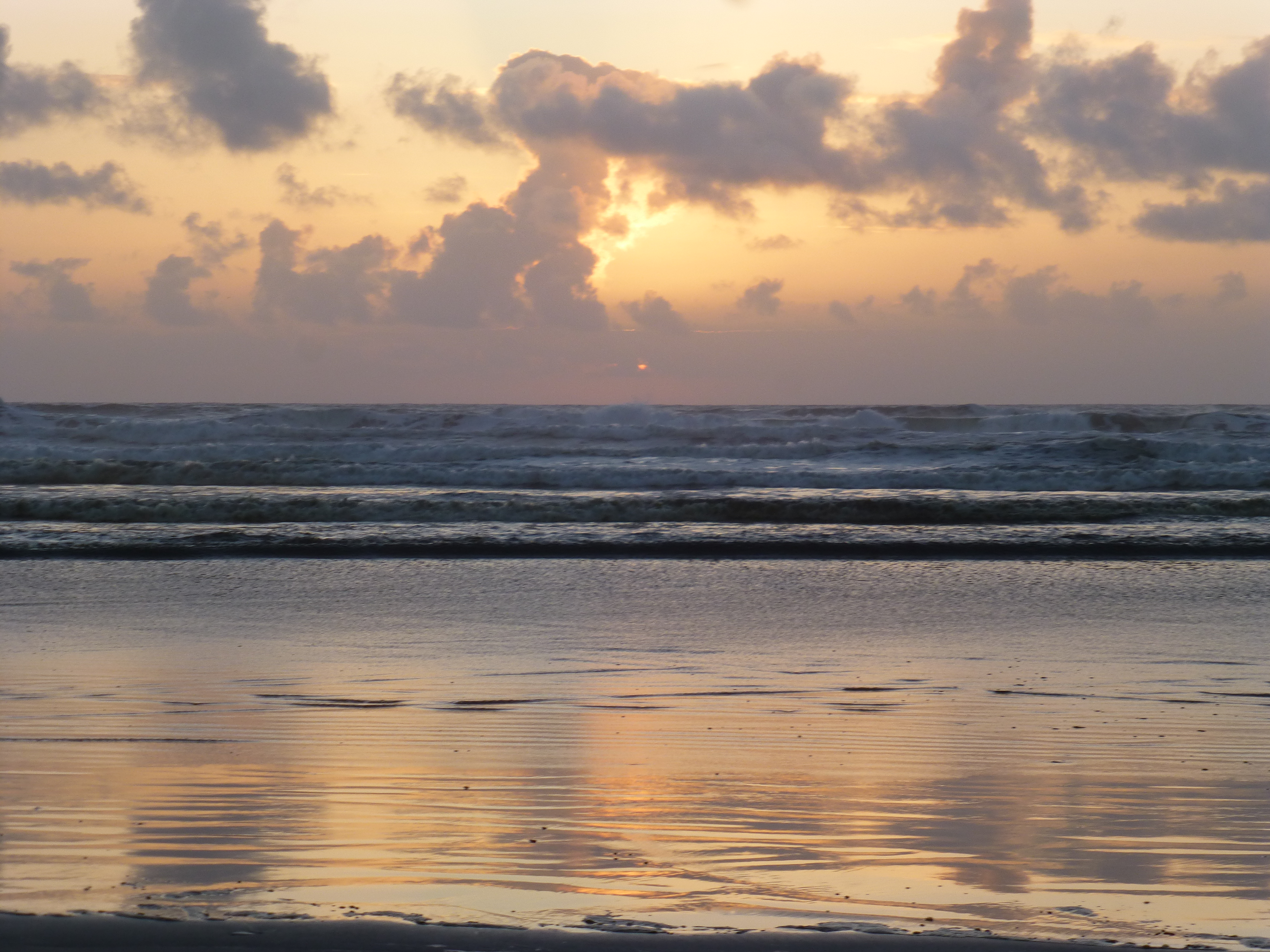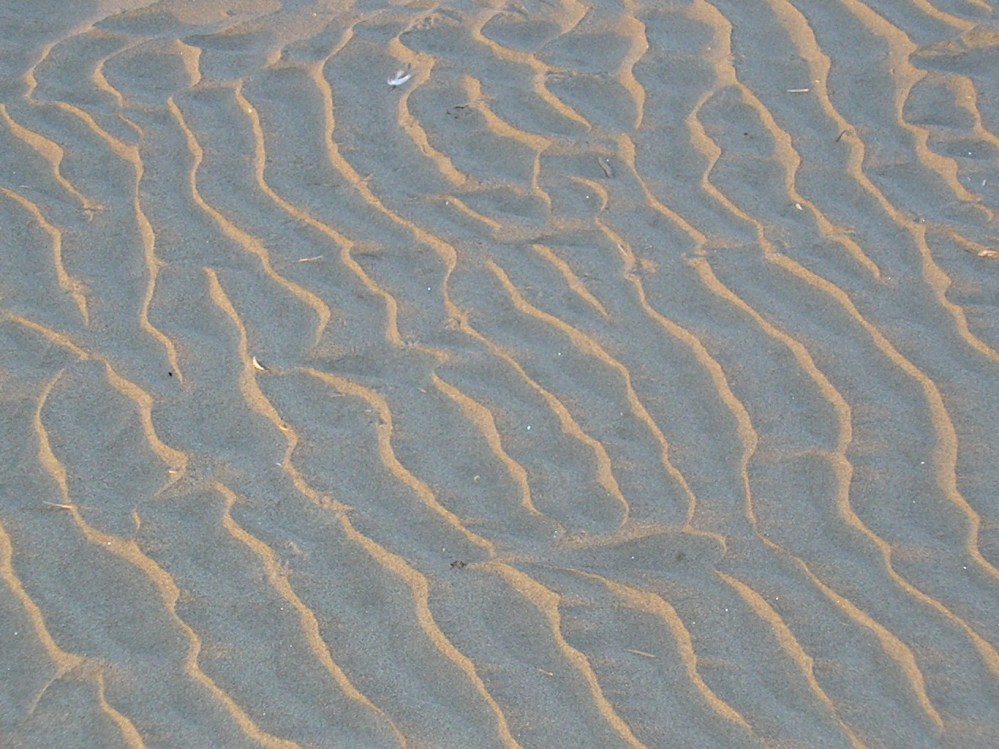By Madronna Holden
In the face of emergencies like the Gulf oil spill, many of us feel like the man in the traditional story who pulls one drowning man after another out of the river.
But even as he reaches the end of his energy and wits, he sees another man running upriver to stop the one pushing all these people into the river in the first place.
Though in an emergency, it may seem that damage control is all we can, so, we should never let it replace our vision—or our rational perceptions of what needs to be done.
Community planner Eben Fodor, who is doing an independent evaluation of “Envision Eugene”, Eugene’s Comprehensive Lands Assessment, observed in a South Eugene Neighbors meeting last night that such damage control has replaced vision in this process. Thus, instead of asking how to create a vital and thriving community of humans and nature, we must figure out how to eke out sustainability and cut carbon emissions in the context of the same growth-oriented development model that has caused our problems in the first place.
In this context, we can only pull as many as possible out of the river—and community members fight with one other over which are the most important to keep from drowning.
As innovative environmental designer William McDonough has put it, such a “visioning” process is like setting a goal of going 20 miles per hour rather than 30 in the wrong direction.
What we really need to do is turn around.
Robert Emmonds of Lane County Landwatch, also at the neighborhood meeting, outlined the ideas that might make this happen– with a primary goal of matching human use to the character of the land. Fitting people’s actions to the land rather than attempting remake the land to fit human convenience is an ancient and effective strategy in human history. One that develop a partnership between humans and their land.
Whether or not we agree with its details, this proposal deserves to be on the table– which cannot happen, since the comprehensive plan is working under the constraints set out by the Oregon State Legislature to allow for growth.
I am glad there are those working on changing this.
As the statement of the recent global People’s Conference on Climate Change in Bolivia points out, all peoples need the development necessary to sustain their lives. But neither the earth nor the human community can afford the current growth-oriented development strategy, which would require five planets just to accommodate the continued resource use of the current developed nations alone.
We also need to shift from damage control to rational planning in dealing with environmental health issues, according to the recently released report of the President’s Panel on Cancer.
The panel’s report noted that when forty-one per cent of US citizens will be diagnosed with cancer in their lifetimes and nearly one in four will die from this disease–and the fastest rising cancer rate is among children– our medical rescue operation needs to look at what is happening upriver to create all these cancer victims.
The culprit is clearly environmental pollution. Thus the panel states that in order to stem the current cancer epidemic we much shift federal policy from a “reactionary” to a “precautionary” approach with respect to the over 80,000 human-made chemicals currently released into our environment. The panel has a clear and accessible list for individual and citizen actions to protect your family, your community, and your personal health—like curtailing of lawn chemical use and switching to organic foods wherever possible.
As with the cancer epidemic, current research implicates environmental toxins in the rates of obesity and diabetes among the current generation of children. Researchers have isolated pesticides that are “obesegens”. Children exposed to this class of pesticides are more likely to grow up obese and to become diabetic.
Together, cancer, obesity and diabetes make children in this generation the first to have a predicted lifespan shorter than that of their parents.
US children are also subject to the fast food/junk food environment created by the concentrated corporate powers that produce and distribute US food. Our system of subsidies for such foods makes it more expensive for the individual consumer to buy organic, locally produced fruits and vegetables than a cheap burger. There is a painful scene in Food, Inc., in which a poor family assesses the costs of items in the fresh produce isle and rejects them all as too expensive.
Kelly Brownell, Director, Yale Center for Eating and Weight Disorders and the Rudd Center for Food Policy and Obesity, put it point blank: our kids “haven’t a chance unless we curtail the junk food industry”. Not only does this industry carefully calculate salt, sugar, and fat percentages in fast food recipes to trigger addictive responses, but they use psychological and physiological research to find ways to bypass the decision-making areas of our brains and produce ads accordingly– to the tune of 100 million dollars every four days.
We pay these costs not only with our food dollars but with our health.
We also pay the costs of researching, marketing, protecting patents and fighting labeling genetically engineered foods. If we shifted to the precautionary rule with respect to these products we would not only require that they be labeled, but we would test them according to their long term effects—and require industry to foot the bill for this before they release their products into our environment.
A central reason why this does not happen is lack of oversight in regulatory agencies– as in the one that exempted BP from developing a plan for handling an accident like the one that is currently spilling as much as two and a half million gallons of oil a day into the Gulf of Mexico– though a citizen group has a plan — a petition to stop offshore drilling. Industry that funds research also oversees its results, leading to a scandal with regard to the scientific peer review process—an attempt to draw up a new ethics policy to keep scientific research independent.
We can see how industry might nix the publication of the study done by a scientist who found that genetically engineered soy fed to three generations of hamsters caused sterility—and triggered gene expression for things such as hair growth inside their mouths. In fact, the industry has worked to restrict independent (non-industry funded) research on genetically engineered products.
But amidst all this dysfunction, there are those who are working at staying the hand of the ones sinking all the lives currently lost to cancer and diabetes. Senator Lautenberg recently introduced the Kid Safe Chemicals Act into Congressional committee. This legislation would institute a precautionary policy with regard to chemical usage in the US., following the lead of the European Union’s REACH program. The Environmental Working Group is tracing the progress of this bill and ways you can support it.
It is about time. In her congressional testimony, EPA director Lisa Jackson agreed, noting how outdated our current 1976 act is in this regard.
The old law does not even allow us to ban asbestos or to clamp down on the use of formaldehyde in construction products, so that this chemical, directly linked to asthma, is more prevalent in new construction than in houses several decades old.
“Fore-caring”—another term for the precautionary principle urged by Jackson and Lautenberg– is an essential moral act. It is also a central pragmatic one. What, after all, is more pragmatic than protecting our own future?
Some would like to take this vision of “fore-caring” even further: creating a society with the central value of caring. Only a caring society would replace an economic system that rewards the acts that threaten our survival. Such a shift to a caring society is the goal of the Network of Spiritual Progressives, who plan a conference with this goal and an impressive array of speakers to be held this coming June in Washington, D.C..
They would like to invite all of you who are reading this to attend.
The network supports a constitutional amendment that states that corporations are not persons with the rights of human beings (as our law currently has it) and all US citizens have a right to a healthy environment.
A shift to a society of caring is only a return to the central value that made humans survivors for one hundred thousand years of our history. Indigenous and non-indigenous peoples gathered from around the globe at the People’s Conference on Climate Change in Bolivia and asserted it in their statement:: “It is imperative that we forge a new system that restores harmony with nature and among human beings,”
There are too many lives of all species going down in the current river of carelessness and greed. We need not only to care for those wounded by our present policies, but to recognize what is wounding them—and develop a vision for changing that.
As the People’s Agreement on Climate Change observes, knowledge should be the shared inheritance of humanity.
So should vision.
Filed under: environmental philosophy, Environmental psychology, Ethics, Our Earth and Ourselves | Tagged: children's health, ECLA Eugene, Kid Safe Chemicals Act, Network of Spiritual Progressives, obesity, planning, President's Cancer Panel, rights of nature |






































The oil spill in the gulf is really a sad state of affairs. Not just sad because of the death and destruction it is causing and will cause but also sad because of the fact that we were not prepared. It is unthinkable that we can create an oil well that deep under water but we never took time to think of what might happen if something went wrong. We have exit plans in case your building catches on fire. We have evacuation plans in Florida in case of a hurricane. But we didnt think of the possibility that a pipe might burst. That is the same careless planning we have been doing all along when it comes to our natural resources. We use them as if they are endless and refuse to take actions to preserve them until something drastic happens and some of them are gone. This is the same attitude that we have used with the oil rigs in the gulf. Hind sight is always good sight. But in some cases it’s too late. Too bad something like this has had to happen in order for us to prepare a safety plan. Hopefully as a worst case scenario we will at least have enough initiative to make sure other wells have the proper equipment to handle an accident and that this equipment WORKS.
Let us hope that this is a wake up call, Mildred. We need “exit” strategies for the chemicals we are spewing into the environment as well– and baring that, we should not be using them.
After my first environmental science class in high school I wondered why we did not have a constitutional amendment that guaranteed the right to a clean and healthy environment. I realized that the world we are living in now is very different than the era of the founding fathers and they could not foresee the destruction of the environment on the large scale it is today. The great part of this is it can be changed, and we can create a guarantee for health in the future. Children in the U.S. deserve a better lifestyle and quality of life. It is our social responsibility to do something and not just sit by while corporations make more money off of our illness and eventual death.
I am so glad to see that this is being taken to Washington. So many changes have been made in the past 100 years for social equality. I think the time has finally come for all living creatures including the earth itself to gain rights as equals.
Thanks for your comment, Aimee. Children do indeed deserve to inherit a thriving natural world. Your phrasing that corporations make money from our illness and death is all too apt.
I agree that this is the next right that we should be working for– for the sake of both ourselves and the natural world that sustains us.
I can personally relate to several of these above mentioned issues. Currently, within the mid-atlantic region of the U.S., modernized chemical uses have done more than affected humans through direct usages. Our waters have reflected negative impacts from chemical abuse. This has been noticed in fish species demonstrating both male and female sexual characteristics. If fish are affected in such a manner; what is this doing to us who depend on such water for our everyday survival?
Our current “junk food” issue has overwhelmed citizens of the world, especially modernized western civilizations. For one to eat healthy requires more than the awarness to what healthy is; it demands a pocket book that supports organic and naturalized food consumption.
It is with great hope that these issues are addressed and action is taken to make ideal healthy lifestyles available to all.
Indeed, Josh, thanks for your comment. I hope that we can follow each of these progressive moves and support them wherever we can. Since such moves in this direction are swimming against the tide of corporate power, they are going to take citizen support as well.
Did you know now that BP chose to use a more toxic chamical to dilute the oil they they are dumping in the gulf because BP and the company that produces this chemical have some board members in common? The bacteria that are supposed to eat this oil are going to have their numbers explode. They are aerobic bacteria meaning that they breathe oxygen. What is this population explosion going to do to the oxygen supply in the ocean? This is going to be devastating for many years to come.
It is amazing to me how powerful these corporations have become. They seem like they are almost exempt from any laws at all.
I wish we had the ability to create a society with the central value of caring. It would very interesting to be able to go to the conference being held by the Network of Spiritual Progressives in DC. I’m sure that it is not going to get much media attention though.
As a native Samoa, my heritage is that of a caring society so forecaring is a common thread in my life. It would be wonderful if we could get back to that kind of society.
We know what is wounding all the species and we do have a vision of changing. I fear we just don’t have the courage to stand up and fight those that are doing the harm.
I had heard that there were questions about the assessment of the safety of this “clean up”, chemical, but I certainly would not be surprised if there was not much forethought involved here–given the board member cross-over. Thanks for sharing this info, Jeff. This is one of the reasons why I think that the proposed Environmental and Social Responsibility Amendment to the U.S. Constitution offered by the Network of Spiritual Progressives–and I wouldn’t say ahead of time that it is not going to get much media attention. They are doing a pretty good job of publicity and have quite the line up of speakers.
Success of such visions is far from guaranteed–but the more we need such changes and yes, the more we fear they may not come- the more we might add our own labor to the change.
Thanks for your thoughtful comment.
It is appalling what Americans are suffering from due to corporate greed. Though I can’t pinpoint exactly when we came to believe that dollars are more important than human life, it is encouraging to see that there are influential, educated people working to save our children and change our views of value. To large corporations, we have become collateral damage, just a side effect of profit. It often times feels that we are guinea pigs inside their labs, being fed as much junk as we can tolerate to satisfy their lust for money. In a sad state of irony, this is marketed to us as creating a better quality of life, one of convenience and value.
It was interesting to find that some of the pesticides can also generate obesity. I had never heard of that before, but it lines up quite well with the dietary situation in the U.S.
I can not fathom why people, even corporate board members, don’t care about their neighbors. Hopefully the conference will bring about some good ideas and changes to implement. I look forward to hearing the outcome. Maybe, since their conscience doesn’t govern their decisions, legislation will help reel in their far reaching impacts.
Thanks for your thoughtful comment, Clayton. It will take all of us who care about these issues– as you obviously do– to shepherd these new visions into reality.
I want to ask some of the folks that are releasing these dangerous chemicals into our environment whether they somehow think they don’t live in the same world as the rest of us. Our society encourages denial concerning the consequences of such chemical releases by rewarding the corporations who do this with profit.
It is telling that with industrial development has come increases of obesity and heart disease, so that developed Asian nations have gone from the lowest to highest incidence of these.
I look forward to seeing what happens in the conference this summer as well.
This is a very powerful article in how we as humans are moving in the wrong direction. I believe that everything cited was about large corporate money. The oil spill only magnifies Americas need for oil. On a small scale it says that our government is not monitoring BP oil company’s spill prevention program but on a grander scale it draws attention to our constant need for oil. How did we get to this place where we need to consistently tap into a natural resource to feed our desire to move around the planet? Large corporations drive this need to deplete natural resources. If corporations weren’t greedy we would have a more economically and ecologically sound program in place to keep transportation in tune with the natural balance such as solar power.
Large corporations are driving the food supplies in this country. There are very few small farms and ranches anymore that can compete with large corporations that supply food quicker and cheaper. We, as consumers, suffer in the quality of our food. The methods to bring us food cheaper and quicker are also what is driving the health care industry. Foods that are produced at an accelerated pace are providing us with more chemicals in our systems than ever before in history. More chemicals mean more disease. We are a sick nation especially when our children are at an increased risk for obesity and cancer. All this is driven by the pharmaceutical industry – more large corporations.
This is a vicious cycle. The only way out is for people to become educated and informed about our options. We can learn to live sustainably by eating healthy with local foods, minimizing our transportation, and encouraging our government to make economically and ecologically sound decisions. It has been proven that the large corporations will not help us out of the cycle if it does not benefit them.
You have raised some thoughtful points, Renea. I think we absolutely need to design our economic system that as a society we reward what we want– I can’t imagine anyone deciding to reward someone for polluting their food, air and water if this type of repercussion of producers becomes clear.
It is ominous that the pharmaceutical industry has some links to the chemical (pesticide) industry– which together drive the negative cycle you are speaking of.
I do think that some businesses have a broader and wiser sense of what “benefits” are than simple short term monetary profits–and in fact, as more consumers make the kinds of choices you indicate in your post, more profit is generated by sustainable and organic food production.
I hope this happens quickly enough. Thanks for your thoughtful comment.
You’re right – it’s so easy to get behind and try to play catch up in a frenzy instead of thinking smarter. This article also goes on to discuss the difference between proactive and reactive actions, such an important topic. Yes it is important to research how to treat cancer, but why not put the most energy into preventing it? Scientists and environmentalists could probably pool money from many different conditions and diseases and apply it toward less toxic conditions, and many people would not be sick. The attempt to cure instead of prevent these diseases is a great example of humans trying to control nature to fit their needs instead of changing habits to fit in with nature.
Your comment indicates why it the precautionary principle is so important, Jamie.
The easy thing about “curing” cancer (and diabetes and endocrine disruption, etc.) by stemming environmental pollution is that it does not take a good deal of research. We already know the harm certain classes of pesticides alone and in concert can cause (the EPA has labeled them specifically as cancer causing, likely cancer causing or potential cancer causing as a result of research we already have). All we have to do is stop using them.
We might also take the insect pollinators whose populations are currently crashing that are essential our food production as an indicator species and stop using pesticides and creating nutritional conditions (mono-cropping) that are contributing to this.
Though chemical companies may well cry economic disaster the European Union countries have done still already… and many analyses indicate that economies would save money in health care costs by doing this, as mentioned by the President’s Cancer Panel in the sidebar quote of the week here.
This oil spill makes me sick. The companies responsible for it want to point the finger at one another, it’s for time them to look in the mirror and realize that without them this would have never happened. They all need to be the solution not just BP. I do feel that BP should take on the majority of the responsibility, but at this point it just needs to be cleaned up. The problem is that money cant clean up what has taken place, nothing can. Now they are introducing chemicals into the water to try to combat the spill. Great idea let’s put chemicals into the water. I am not trying t o act like I know everything about this problem, but it’s just a big big mess.
It is now apparent that I need to watch this Food Inc. I have had a professor tell me about in my International business class, and now a Doctor in philosophy has mentioned it numerous times. I have two children and I obviously want the best life’s for them, and to hear the fact that “Together, cancer, obesity and diabetes make children in this generation the first to have a predicted lifespan shorter than that of their parents.” I have not seen the study and wonder if I, along with my children, are all lumped into this category, I’m 26? I just think we all need to become more aware of topics like this especially something as important as stuff that we put into our bodies and our loved ones as well. Being educated on foods and at least bringing awareness to facts discussed here is a huge step.
As always thanks for the thought!
You are certainly welcome, Jonathan. And thanks for the care you are expressing for your children. With respect to the shortened lifespan, I have reference to a statement in the President’s Cancer Panel. You might want to look at their recommendations for individuals (in outline form–easily accessible). I think they had reference to the children currently being born– a very sad bit of data indeed.
The oil spill is indeed tragic on many levels: the best that can come of this is that it creates a wake up call for the need to change our “business as usual” stance. The CS Wire (developed for and by responsible business) folks have a current question they are dealing with– whether the BP oil spill would have occurred under the “responsible business creed” they recommend.
Certainly something to consider in developing a precautionary stance for the sake of our children.
It is disgusting that our leaders, as well as we ourselves, can not find the time or the dedication to work toward a healthier society and planet.
Seeing the destruction of the Earth around us is a terrible experience, yet can understand how people can easily ignore these problems. When this same destruction is affecting your own family, however, this is even more unacceptable.
Obesity in America is a rampant problem that needs to be addressed by the government, the corporations, and the people. By ingesting these chemicals without any thought to the circumstances we have become unable to stay healthy and have begun shortening our lives.
Responsibility for this issue has to begin with the people it affects. We need to stop allowing fast food corporations to turn massive profits by poisoning entire generations. We need to use their capitalist approach against them and hit them in the only place they care for, their wallets.
A healthier America begins with a bankrupted fast food industry.
Thanks for sharing your passion on this issue, Rick. It is no accident that we destroy our own health when we destroy the health of our ecosystems. I absolutely agree with you that we should stop rewarding those who destroy the health of both of these.
When observing the gulf coast disaster, it’s clear, the sustainability challenges the planet faces are extraordinary and completely unprecedented. My in-laws are from Louisiana and I have seen firsthand the devastation of Katrina and Rita, and how so many are still trying to recover. I’m hoping that just as Katrina brought to light the truths of poverty and racism in our country, maybe this spill can rally enough anger to demand complete energy policy change. I thought the timing of the spill was interesting- just as Obama approved offshore drilling, this happened. It’s almost like the Universe is saying- “No little humans- you simply cannot continue with your old ways!” We definitely need policies that demand higher expectations for businesses and more serious consequences for improperly crossing the boundaries of corporate responsibility- and we simply need to develop sustainable capitalism.
I keep thinking that in a few years from now, a new generation will look back at us in this time of choosing and ask ‘What were you thinking?’ But, if we can all collectively make positive changes and decisions now, maybe they will be able to ask, ‘Where did you find the moral courage to rise up and solve all this crisis when at times it seemed totally impossible?’ We need to continue to fight for solutions to all of these problems, and like our ancestors, save the integrity of the earth’s ecosystems.
Thanks for your comment, Kimberly. Let’s hope that we “little humans” get the wake up call the universe is giving us before we create any more disasters. It is my hope that those who look back on us in future generations will say that there were some of us that cared about them–and acted accordingly.
Ok, I know this is going to seem a bit silly, but the values and culture that was created in the world of the Federation in the television and movies of Star Trek. In the Federation, people have what they need, never have to worry about being starved, or homeless, etc. Everyone cares for each other, they work to support each other, and to support the land around them. A culture has evolved that lives substainably with each other and their world. And while it is all imaginary, a world and a culture created by the mind of Gene Roddenberry, it symbolized the future that he hoped we might have. One in which discrimination is unheard of, where everyone is worth the same as another.
It isnt such a bad thing to aspire to, a happier world…..
I don’t think that vision is ever “silly”, Sam. I very much like this slogan of an uprising in Paris: “The worst oppression is the idea that reality is the only possibility”.
And I think science fiction sometimes take the place of mythic imaginings in other cultures.
I’ve read that those addictive properties in fast foods are also in the majority of processed foods on the market today. A lot of those foods are marketed towards children. Cereals with cartoons on them and fun shaped fruit snacks. What exactly is a fruit snack? It’s certainly not fruit. So not only do we need to protect our children from drug use and smoking, now we need to protect them from junk food. At what point is enough enough? Some schools in Los Angeles are so close to the free ways that the children that attend those schools have asthma and other health problems. We have to protect them from air now? They can’t even play outside? It’s about time we stop letting big corporations make our decisions for us.
Thanks for your comment, Jennifer. A “fruit snack” is obviously something with a lot of sugar. I think we have reached the point where enough is enough.
We truely are fighting an uphill fight. I think that if more people really understood the cancer epidemic and that its being caused by environmental polution, we would be getting somewhere. Its unfortunate that our mainstream media is in the pockets of interests that don’t want the system to change. As far as our children and junk food go, I think that it is really up to the parents. Personally I will not raise my children on fast food, junk food, and television.
Perhaps the disaster in the gulf coast could bring positive changes in the peer reviewing process. I am thankful for those who are currently working hard to change the system.
Thanks for sharing your values about these issues, Benjamin. You can be part of the ones who spreads the word– gaining information is the first step toward making wiser decisions.
This is a very enlightening article. However, out of all of it, what I really think I will take away from it is William McDonough’s statement that, “such a “visioning” process is like setting a goal of going 20 miles per hour rather than 30 in the wrong direction.” This sums up the entire point concisely. We are putting bandaids over wounds we are creating in the environment while doing nothing to prevent those wounds. And however you want to look at it, anyone could find motivation to turn the car around. For anyone who loves our planet and nature there are a myriad of reasons to do so. But even looking at it in an entirely selfish way, there is still an enormous list of reasons we shoud backtrack. The increasing cancer, obesity, and diabetes rates are going to ensure that this generation actually has a shorter lifespan than the preceding one. And this is one of the most technologically advanced nations in the world! As the poignant argument goes, we can put a man on the moon, but we can’t even keep ourselves healthy. All of our technology has lined the pockets of some, while lining our bodies with salt, fat and sugar and lining our bodies with cancerous growths and dangerous chemicals.
I understand what the author of this article was getting at when she said, “In the face of emergencies like the Gulf oil spill, many of us feel like the man in the traditional story who pulls one drowning man after another out of the river.” However, when I read it my initial reaction was one of complete disagreement. I feel like that is an event where the power to influence it is so far beyond my control that I cannot be the man pulling people from the water. As I said, I understand the point being made using that story, but my first reaction to it was one of helplessness. I feel like there is so little I can do to affect the state of things.
However, even though the big decision-making processes are way beyond most of us, we still do exhibit some control. I followed the link and watched the trailer for the movie Food Inc that was referenced above. In the trailer a great point is made that every single food item we buy is a vote for that product. If no one bought McDonald’s or soft drinks, they would cease to be produced. And if people only bought organic crops, they would only produce organic crops. I understand that this won’t happen, as I often rely on quick and cheap fast food options in my diet. But already, since having read this article the other day, I am forcing myself to become very aware of who and what I am supporting by every purchase I make.
Hi Spencer, thanks for the thoughtful comment. I think the man pulling folks out of the river must feel pretty helpless, like those trying to safe oil-soaked wildlife on the Guld–I like Michael Lerner’s take on this. He says that we are all powerless in real ways (when we are up against corporate dollars, for instance), but we are not–as you note– completely powerlessness. He has a book called Surplus Powerlessness, in which he details the ways large corporations try to get us to feel that because there are some things we cannot, we cannot do anything at all. This feeling he labels “surplus powerlessness”– which we feel especially if we are isolated from one another and do not understand both how we share the same fate and how working together can really make a difference.
You are right about your food choices– those choices count in themselves, in conjunction with the many others who make the same ones–and as a model for others. Every vote with your dollar is important in this way–as are so many other choices each of us make daily.
I am very inspired by Spencer’s comment. I always try to be aware of what I am buying, but I have never taken the great big step of supporting my every purchase. I have discussed the idea with my fiance, and we both feel that this is a good idea (for the Earth and for our wallets). I am a recovering shopaholic, and frequently give in to impulse purchasing even when I know that I shouldn’t. Making him a partner to be accountable to is something that I really need. I don’t feel that I need him to tell me what to do, but it couldn’t hurt for him to talk things out with me before I buy.
I have noticed that when I spend money, I feel powerful. (Powerful might not be the right word for it, but I cannot think of a proper synonym.) This is the main reason that I became a shopaholic while I was battling depression. I was determined not to use pills, but I found other things like shopping that I realize were crutches. However, there is no reason that I should not use that feeling of power for good instead of for evil. I can use that feeling to stand up against the companies that are trying to make us feel powerless. And most importantly, I can feel empowered to make good decisions about my purchases. I started this process a while back, but I think I’m ready to take the next big giant step.
I wonder if this sense of power goes back to the old hunting and gathering days of amassing things on which we could survive the winter (!).
But why not, as you suggest, make this shopping urge into something positive, thinking you are doing something for the planet as well as for yourself as you speak with a grower in a farmer’s market or find a bargain in a second hand store (you can spend hours there buying little). I think we do equate money with power in this culture and because so many women for so long have not had the economic wherewithal to earn their own money, buying something can seem a form of empowerment.
On the other hand, there is the sense sold to us by ads, that if we are feeling lonely, sad, or depressed, we can just buy something to make ourselves feel better (Jeanne Kilbourne analyzes this manipulative strain in modern ads in detail in her book and videos. ) Those in the most vulenrable emotional states are the most open to such suggestive ads.
I have lived in countries (the Middle East) where the market is a social gathering place as well as a place for the local economy to flourish.
Thanks for sharing your personal experience: I know there are many of us who can relate to it.
I completely agree that a paradigm shift is needed and that as a society we need to develop and implement new visions and new institutions and structures in order to create healthy and sustainable communities instead of attempting to work within the same continuous “growth oriented” framework. I also agree that as humans we should adapt to our local environments instead of trying to control nature and adapt the local environment to fit people’s ever-growing needs. Additionally, it is good to see that bills like the Kid Safe Chemicals Act and other bills such as those requiring that genetically modified foods are labeled (these have been introduced many times but have always died in committee) are being introduced and that groups are advocating change such as a constitutional amendment ensuring corporations are not treated as people. However, at the same time I think that in order to truly implement these changes needed to ensure sustainable, balanced and healthy communities that a cooperative effort is needed at all levels of society and that individuals have to be willing to implement lifestyle changes.
Thanks for your comment, Natalie. I agree that in order to implement such changes, we need a change on all levels of our society with lifesytle changes. We obviously cannot continue to live in the same way when our lifestyle has caused such problems in the first place. Moreover, we are not going to get legislation such as the Kid Safe Chemicals Act passed (much less legislation stemming the tide of corporate greed) UNLESS we carefully assess and hold to the values that we want to create in this society today and for our children.
There is a recirprocal relationship between the our changes as individuals and those of our system: so that as we change one, the other changes, step by step.
Hello, The running analogy is very good for describing the growing problem of not ‘fixing’ things the right way. While we could be solving a whole crisis, we often focus on how to ‘quick fix’ or use the easy route. I also very much like the idea of ‘fore-caring’ as a concept to aid and reversing this way of thinking. Its not that we as a society or humans in general need to control the environment or ‘fix’ it, but we need plausible long term solutions to the problems we have caused and provisions to prevent future crisis. While I would like to think that the Gulf spill would bring about an awakening and positive changes, yet the pessimistic side of me thinks about recent disasters that have not effected our actions or way of thinking.
I am with you on these points, Cheyanne. I think each of us must work in whatever ways we can to make sure that this is a real wake up call and not simply an attempt at quick fixes (even one another another that do not seem to be working)– but is a wake up call to change our way of doing business. The change begins with perceptions such as the ones you express here.
The cancer rates are terrifying, especially the rise in childen’s cancer. Think of how our lives have deviated from the humans that have lived on the earth for the last 20,000 years. We live in a world where humans, plants, animals, and even abiotic systems are constantly exposed to new and many times harmful chemicals. Science has just started learning how chemicals affect living things. There are so many things that we use and even depend on every day that could hurt us in some way, we just haven’t learned about yet.
Humans weren’t made to live this way – our bodies aren’t designed for it. Our ancient ancestors – the humans that we have evolved from – lived in such a different environment that they adapted to. Their bodies inherited “traits” along the way that enabled them to survive and reproduce through the process of natural selection. Plants and animals are also affected by the unnatural lives we have taken on – and they don’t have any control over it.
Until we change the way we eat, the way we live, and the way that we do it – we are putting all life on this planet in danger and changing the chemical composition of the earth.
Thanks for your thoughtful comment, Heather. I agree that there is not only fear but grief in the ways in which cancer rates– which are predominantly environmentally caused– are rising among the youngest of us. It is more than time to learn how to adapt to the natural world as our bodies have been adapted in this way for thousands of years. We need change in all the dimensions you mention– and I also think we can only do this step by step as we make each of the choices in our personal lives.
I find it funny that my son is currently watching Wall-E while I am reading this.
It is so disheartening that our future generations have such a bleak road ahead of them. We have a solemn responsibility to protect our children and part of that is keeping their future healthy. A friend of mine actually told me that she uses sunscreen on her newborn to prevent a sunburn that she would have to deal with now and that her daughter can deal with the cancer herself later. I just about broke into tears. It’s that kind of attitude that gives future generations problems. My generation that is currently having children are lazy. Most would rather stop at McDonalds than make a simple PB&J sandwich at home. We need to get parents more attune to the health of their children and that may turn us towards sustainable, cleaner living.
Thanks for your comment, Megan. I am not sure what kind of attitude your are speaking of here. Skin cancer is a prevalent possibility, especially with the decrease in the ozone layer–and newborn skin is especially susceptible. It seems a decent precaution to put sunscreen on your child. I think your generation inherited a good many problems that I hope we can work together to address.